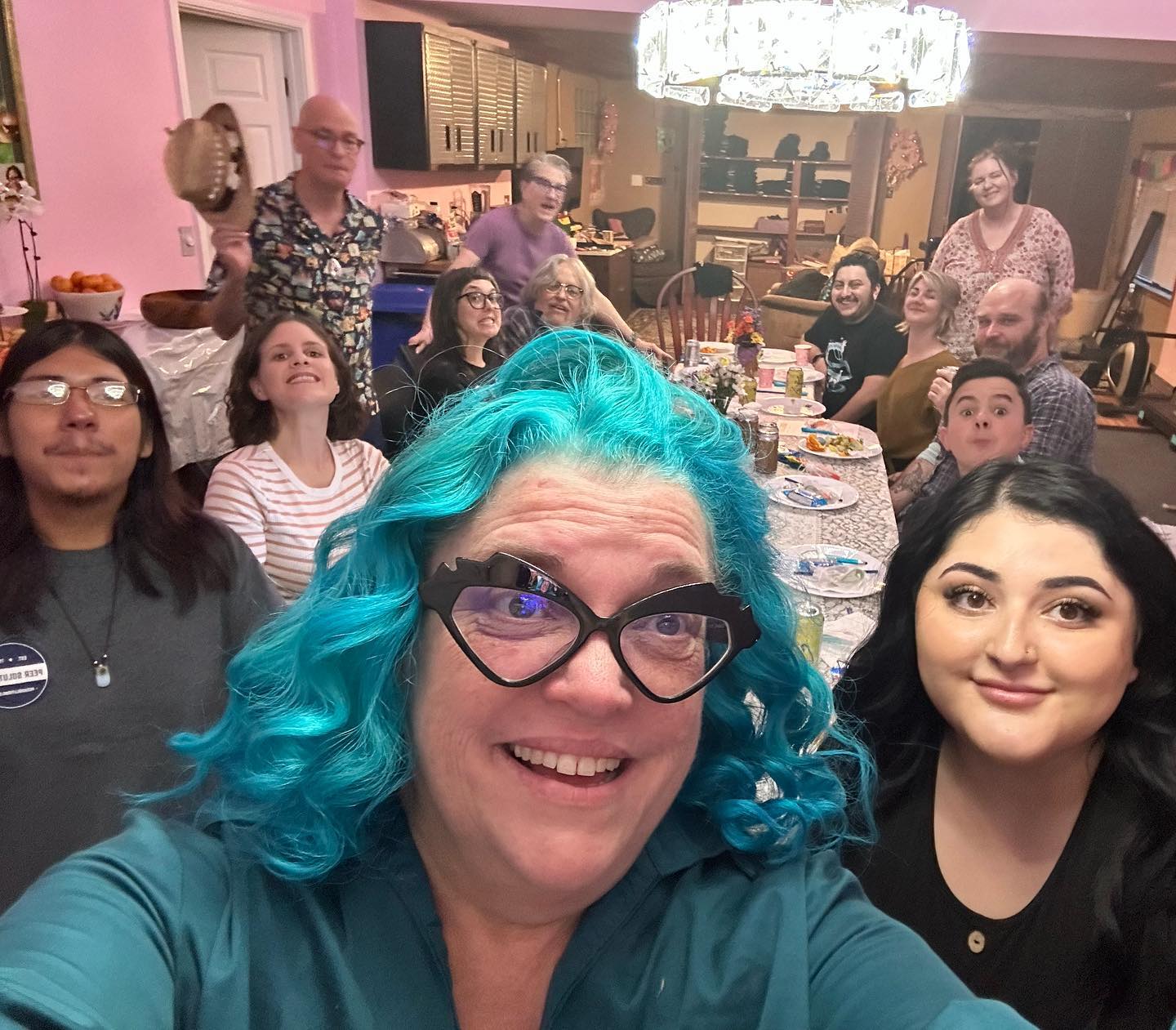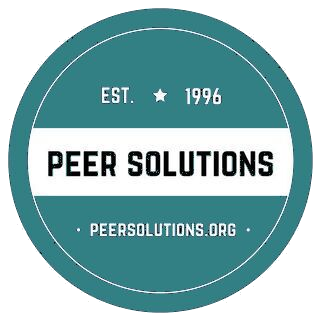Who we are
Our Guiding Principles
1. We are committed to systemic solutions to address and end rape culture
Preventing sexual violence before it begins, including child sexual abuse, is at the heart of all we do. We believe the root causes of rape culture reside in oppression including historical and current trauma, silence/denial, and normalized harm- sexual violence (OSN). We know OSN perpetuates sexual violence and is a root cause of multiple harms. We know sexual violence is more prevalent among traditionally marginalized communities including People of Color, LGBT people, people with disabilities, incarcerated individuals and young people. We know sexual violence can have negative, life-long, and generational consequences that can be prevented. We advocate for those harmed with empathy and compassion. We promote resources for those harmed, harming others, and anyone in need, to prevent future harm. We work to end the Rape Culture by cultivating a world where Safety, Equity, and Respect (SER) are normalized across the Social Ecological Model (SEM) with individuals, relationships, communities, and societies. SER across the SEM is the opposite of OSN. This is a world free from sexual violence.
2. We are committed to addressing and preventing systemic racism
We represent and advocate for and with communities facing the greatest disparities. We acknowledge the harms of colonization and slavery and the impact today including the direct link to rape culture. We advocate for Black, Latine, Indigenous and other communities of color, individuals with disabilities, LGBT individuals, and current or formerly incarcerated people. We promote self-advocacy and agency support for and with these communities. We build partners dedicated to ending systemic racism. We work to create a culture that is inclusive of all people regardless of identity. We work to end the school-to-prison pipeline including “exclusionary school discipline practices”.
3. We are committed to normalizing Trauma Informed Primary Prevention (TIPP)
Primary prevention is about addressing and preventing the root causes of harm before they begin by cultivating the opposite with a trauma informed lens. TIPP is proactive. Strategies are designed to address and prevent trauma pre-birth through the human lifespan. Addressing trauma pre-birth is about validating historical trauma at its root by understanding trauma is passed through generations through DNA and other factors including systemic racism. Addressing trauma pre-birth is also about interrupting the cycle of harm. All youths are potential parents or adult caregivers. Even if they came from families where SER was not normalized, they can ensure that it is for their future families and communities, and they do.
4. We are committed to cultivating safety, equity and respect (SER) as norms
We cultivate SER to address and prevent the root causes of harm (OSN). We believe that human behavior can be viewed along a continuum from SER at one end and OSN at the other. “90% of behavior is learned through modeling.” (V. LaCerva) Model SER and others will too. We are committed to promoting a movement toward equity and away from harm.
5. We are committed to advocating for equity to address and prevent disparities
We advocate for and with youth and individuals with disabilities, LGBT identities, people of color, and/or those formerly or currently incarcerated. Individuals within these groups face much higher rates of all different forms of harm than those outside of this demographic. We will continue to learn from and with these communities,’ strategies that maximize positive, permanent impact. We advocate for humanity and human decency. We are dedicated to building and empowering allies to address and prevent systemic racism based on greed and white supremacy through knowledge, power, respect, and peaceful resistance as deemed necessary. We promote respect for racial, cultural, and all identities and provide education on the impact of Historical Trauma, including how genocide, slavery, colonization, and apartheid/segregation are at the root of systemic racism, then and now. We seek solutions within these communities’ understanding the universal pervading cultural influence is not always in alignment. We seek to transform these ideas and assign value to all human beings regardless of race, ethnicity, creed, color, religion, gender identity, sexual orientation, and/or ability. We work to create a culture that is inclusive and contributes to the growth of all people. We believe that respecting differences also means understanding that people from various ethnic, race, religious, gender-based, ability level, and sexual orientation cultures experience the world in a variety of ways. Valuing multiple perspectives is key to normalizing SER.
6. We are committed to addressing and eliminating root causes of harm: oppression, silence/denial, and normalized harm (OSN)
We cultivate SER to address and eliminate OSN. The harms TIPP prevents include Bullying/Harassment, Child Abuse, Criminality, Domestic, Gang, Gun, Relationship, and Sexual Violence, Depression/Suicide/Self Harm, food and housing insecurities, Poor School Performance, Poverty, Self-Harm, Sexually Transmitted Infections/HIV, Substance Abuse, Trafficking of Humans, and Traumatic Brain Injury.
7. We are committed to activating the Guts to be Good (G2BG)
G2BG focuses on 5 acts everyone, everywhere, every day can do to make the world a better place. G2BG is how we cultivate SER to end OSN across the SEM.
- The guts to be RESPECTFUL
- The guts to be COURTEOUS
- The guts to SPEAK UP
- The guts to be HONEST
- The guts to LEND A HAND
Positive social change happens at the individual level with simple positive behaviors and acts of kindness such as lending a hand and speaking up, and extends to the societal level with policies and laws that protect and serve all living beings fairly and equitably.
8. We are committed to using evidence-informed strategies
Peer Solutions is committed to using evidence to strengthen our Public Health Approach which includes all curriculum and evaluation materials. This evidence includes Positive Youth and Community Development and Mobilization, Developmental Assets/Resilience, Peer Education, Leadership and Mentoring, Social-Emotional Learning, Diffusion of Innovation, Social Norms, and Social Marketing research. We cultivate protective factors to reduce and prevent risk factors. These protective factors include building and maintaining relationships with family, schools, and the community and an increase in positive school performance. Strategies are inclusive, relevant, and adaptable across the SEM. We understand community and societal-level strategies are the most effective, and individual-level strategies do not stand alone. We are committed to developing and sustaining strong partnerships with youth, families, schools, businesses, governments, nonprofits, funders, and other organizations (everyone). We are committed to evaluating the results of our work and seeking new ways to enhance our effectiveness through short-term, intermediate, and long-term positive impacts in knowledge, attitude, and behavioral change indicators across the SEM.
9. We are committed to transcreation
Transcreation is the development, updating, and use of materials and activities that are designed by and for the communities we serve. We use methods that are consistent with learning principles and National, State, and School District Standards. Our motto is No Decision About Us Without Us. When possible, our staff represent the communities we serve. Research confirms materials and activities are best if designed, implemented, and evaluated by and for the communities we serve.
10. We are committed to implementing youth-developed and led efforts
Mobilizing youth maximizes generational impact. Those most affected by the harms we are trying to prevent, including marginalized communities and youth, offer the best solutions. We partner with families, schools, businesses, governments, and communities to help youth not only survive multiple challenges but also thrive. These youth then contribute to generations of safe, equitable, and healthy attitudes, relationships, behaviors, and policies. We support our young people as they grow into confident, kind, and loving adults. We will consistently strive to be deserving of their trust.
11. We are committed to practicing safe responsible bystander (SRB) behaviors
SRB is about everyone, everywhere, every day speaking up when they perceive it to be safe if anything harmful is witnessed or heard. This includes addressing discriminatory behaviors such as racism and sexism. Thoughts become words; words become behaviors; behaviors become habits; habits become values; values become destiny. We must demonstrate positive beliefs in thoughts, words, behaviors, habits, and actions. SRB is about cultivating SER to end OSN through G2BG across the SEM. Everyone knows what to do if they suspect or witness harm.
12. We are committed to identity respect
We believe valuing an individual’s identity, including cultural, racial, religious and political identities is a key to normalizing SER. Devaluing others desensitizes us to the humanity of one another and engenders harmful behaviors. We are committed to promoting respect for individual differences in thought, word, and action, and employing methods and educational materials that are relevant to the communities and individuals that we serve. We strive to include individuals with all abilities and identities and adjust activities to meet the unique needs and sensitivities of all participants. If we model identity respect others will too and it then becomes normalized in and with communities and society. We are non-partisan.
13. We are committed to advocating for empathy and support for individuals victimized, harming, and/or witnessing harm
Individuals are not responsible for the violence perpetrated upon them. We advocate for kindness, compassion, non-judgment, respect, and empathy for individuals and groups harmed. Those who have been harmed generations ago or in the present day deserve at the least equity in information, services, and support. Resources and support reduce the subsequent negative effects, including the probability of recurrence. We assist those harmed to acquire resources and whatever else is needed to feel safe, respected, validated/understood, and valued. We strive to normalize a safe society and environments for those harmed to report and/or get whatever is needed to help them survive and thrive. We work to end the cycle of harm by promoting accountability and resources for those who perpetrate harm. When possible, we link those who engage in harmful acts to services aimed to prevent future additional harm. We advocate for and promote compassion, respect, and empathy.
14. We are comitted to maintaining a healthy organization through inclusion, honesty, trust, transparency, and accountability
We acknowledge being honest, having difficult conversations, and hearing or speaking the truth can be painful. As an organization and as individuals, we commit to sacrificing our comfort, to be honest and forthright. Normalizing Safety, Equity, and Respect (SER) begins with an environment where people can trust one another. We model Peer Solutions’ guiding principles in our words and actions. If we witness behaviors incongruent with these principles outside or within our walls, we will speak up and take action when we perceive it to be safe. We believe in Participatory Management and Servant Leadership. Everyone has an equal voice in decision making and we believe leadership is about serving others. Diverse and equitable perspectives reflecting our guiding principles maximize our impact. We believe in and authentically value our team (staff, peer leaders, participants, volunteers, community partners, funders, and board). We work to ensure that our staff and board members represent and mirror the communities that we serve. We strive to create permanent safe and healthy environments within and outside of our walls.
Our Board
Board Members
Adam Jesudason, Alison Chandler, Charlie Ganz, Courtney Ward, Gavin McCullough, Kevin Crispin, Kristen Nelson, Kyle Simpson, Lisa Steen, Megyn Neff, Veronica Murillo, Ligaya Manalastas
Honorary Board Members
Billy Bob Thornton, Nate Nathan, Neko Case, Juan Mendez and the late Barry Crimmins
President
Kristen Nelson
Vice President
Jay Wiggins
Secretary
Ramiro Calderon
Treasurer
Tonia Smith

By and for the community.
Subscribe to Our Newsletter
Get access to latest news and all the features by subscribing here.
